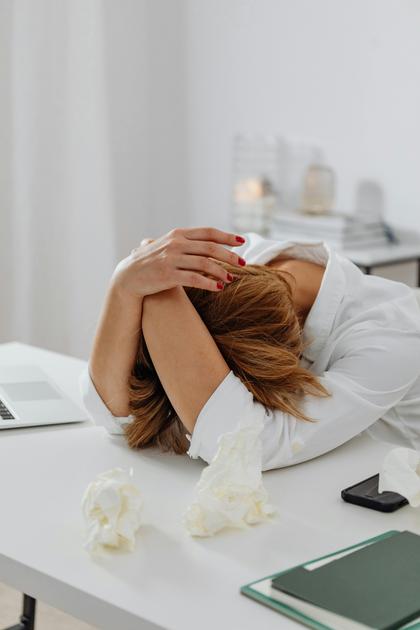Woman, Are You Plagued by Anxiety & Burnout Mysteries?
Understanding Anxiety and Burnout in Women
Anxiety and burnout are prevalent among women, affecting both their personal and professional lives. Understanding the root causes is essential to mitigate their impact. Women often juggle multiple roles, leading to increased stress levels and feelings of inadequacy.
Burnout results from prolonged exposure to stress without adequate recovery. It can manifest as physical, emotional, and mental exhaustion, often accompanied by a decrease in performance. Recognizing early symptoms is vital to prevent long-term effects.
Identifying the Symptoms
Symptoms of anxiety in women might include persistent worry, sleep disturbances, and changes in appetite. Emotional signs such as mood swings or feelings of hopelessness can also indicate anxiety.
Burnout symptoms overlap with anxiety but are unique in their manifestation. They often involve a sense of detachment, lack of motivation, and a decrease in personal efficacy. Physical symptoms like frequent headaches or gastrointestinal issues may also be present.
Causes and Triggers
Multiple factors contribute to the onset of anxiety and burnout in women. High expectations, societal pressures, and workload imbalances are common causes. Additionally, personal experiences such as trauma or major life changes can act as triggers.
Understanding these triggers can help in developing coping strategies. Awareness and proactive management of one’s environment and responsibilities are crucial in mitigating these conditions.
Effective Coping Strategies
Engaging in regular physical activity, practicing mindfulness, and maintaining a healthy work-life balance are effective methods to combat anxiety and burnout. Women should be encouraged to prioritize self-care and seek professional help when necessary.
Developing a support network of family and friends can also provide emotional stability and reduce feelings of isolation. Regularly connecting with others can foster resilience against stress and burnout.
The Role of Professional Help
Professional help, such as therapy or counseling, is invaluable for individuals suffering from anxiety or burnout. These professionals can offer tailored advice and coping strategies, and in some cases, medication may be beneficial.
Exploring therapeutic options such as Cognitive Behavioral Therapy (CBT) can provide significant relief by altering negative thought patterns and improving overall mental well-being. Online resources also offer valuable support for those unable to attend in-person sessions.
Prevention and Awareness
Prevention is a critical component in dealing with anxiety and burnout. Continued education and awareness about mental health in women can empower them to take control of their well-being proactively. Establishing boundaries and practicing mindfulness can prevent the onset of overwhelming stressors.
Employers can contribute by fostering a supportive work environment that acknowledges and addresses the challenges women face. Flexible work options and wellness programs can significantly reduce stress and its subsequent effects.
FAQ
How does anxiety affect women’s health?
Anxiety can impact women’s health by disrupting sleep patterns, causing cardiovascular issues, and weakening the immune system. It may also exacerbate pre-existing health conditions, leading to a decline in overall well-being.
What steps can be taken to reduce anxiety in daily life?
Incorporating relaxation techniques such as deep breathing, meditation, or yoga can effectively reduce anxiety. Establishing a routine with regular exercise and balanced nutrition also plays a significant role in managing stress levels.
Can burnout lead to long-term health problems?
Yes, if left unmanaged, burnout can lead to long-term health issues such as chronic fatigue, heart disease, and depressive disorders. Early intervention and continuous self-care are vital to preventing these consequences.
How can mindfulness help with anxiety and burnout?
Mindfulness helps by encouraging focus on the present moment, which reduces stress and improves emotional regulation. It can enhance resilience to stressors by promoting a conscious awareness of thoughts and feelings without judgment.
What role does sleep play in managing anxiety?
Quality sleep is essential for managing anxiety as it restores mental and physical health. Poor sleep exacerbates anxiety symptoms, so maintaining a consistent sleep schedule can support better mental health outcomes.
Watch the Video:














